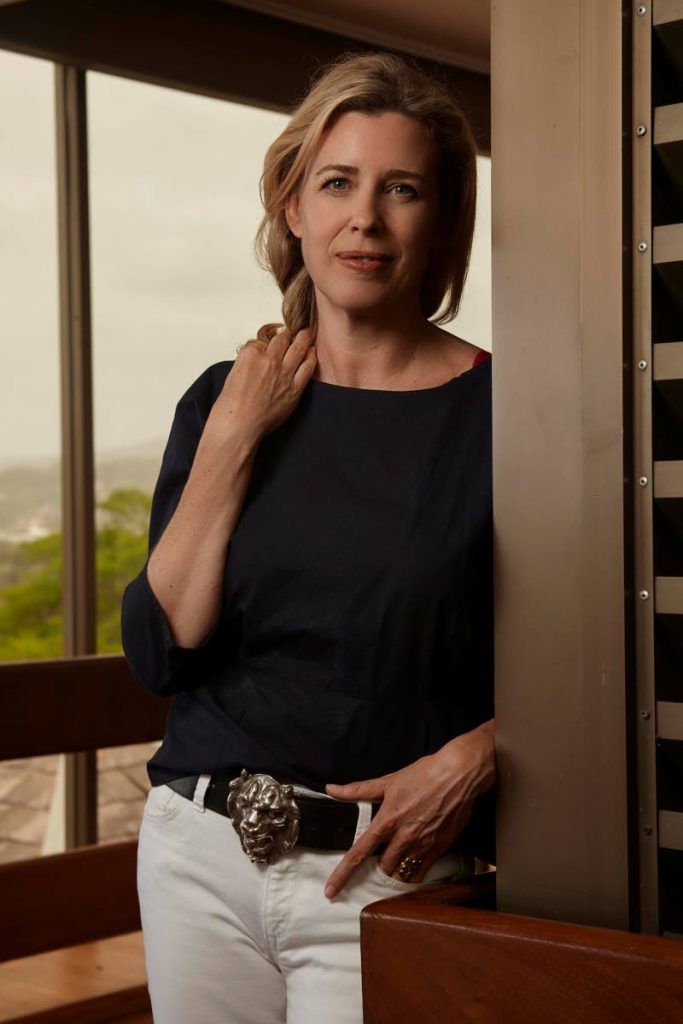Tito’s beloved Trinidad

AMANDA SMYTH is an Irish-Trinidad writer.
Her published work includes the novels Black Rock and A Kind of Eden. This is an extract from her third novel, a work in progress.
On Sunday morning, Tito Fernandez kissed his wife and daughter goodbye. He told them he had business in Arima and wouldn’t be back until evening. He drove out of town towards the east coast. Mile upon mile he drove, and he passed the turning to Arima, made his way along the empty road. And while the land rushed by – the cane fields and the rice fields and the burnt hills with their black scars and the lilac sky above them, he thought about his life and how he was going to end it.
Last month, Tito had lost the family fortune in the New York stock market. He had more than $50,000 saved in a high-interest account in the United States of America Bank, which, according to the press, was preparing to announce its closure. While the Hoover administration and the Federal Reserve were doing nothing to slow the accelerating trend of bank failures all over America, he was warned that he would lose even more in Tennessee. He never foresaw the fall of Caldwell. How could he? Who told him to put money in a bank in Tennessee? He’d been reckless, got ahead of himself. Amongst his American investments, he’d lost Ada’s own life savings, all the money she had inherited from her father.

He’d heard of men in New York who’d lost everything in one afternoon, hurling themselves from the tops of buildings, dropping like dolls. It had given him ideas.
While Tito drove along the road lined with coconut trees, their branches blew like hair tossing in the wind, and they seemed to welcome him as old friends might. With a lump in his throat, he thought of how much he loved this island. And he remembered with some sadness, how, at five years old, his hand just big enough to grip an apple, he cried when he saw a skin of a tiger stretched out on the wooden floor of a house in Aldershot, Hampshire.
The lady of the house asked, “Are you crying because of the tiger?”
Yes, he said, not because it was dead, but because it looked like a map of Trinidad.
She took pity on him, went to the library and pulled down an atlas – a large colourful book with drawings and watercolours from around the world, and she found a page featuring the British West Indies and the islands were scattered there in pastels.
She said, “I see what you mean. A tiger skin.” To the light she held up his half-eaten fruit. “Or an apple core.” She patted his head. “How you must love your home to cry like that. Be glad that it matters to you.”
Now Tito imagined himself driving along the tiger’s belly, and as he felt the hot breeze on his face, he remembered how, in England, he’d never felt warm. No matter how many vests and sweaters he wore and how he positioned himself by the open fire in the great hall, his bones were always trembling. He traded baths with other boys, so he could soak in hot water three or four times a week.
He lost weight. School meals made him sick, he survived on tins of mandarin oranges, slurps of condensed milk. Every morning he looked for letters from home, watched for a coral stamp showing Blue Basin and an airmail sticker, he longed for the crabby hand of his mother’s writing. Tito waited for summer to come, not realising his mother and father had other plans for him: seven years at the Royal College of Surgeons in Dublin.
Tito hadn’t cared for anatomical lectures, details of the history of the human body and its illnesses. Clinical investigations and post mortems held no interest for him. He learned that to tug off the top of someone’s skull you would need a bone saw and some force; tearing through fascia, the thin layers of tissue covering the muscles and internal organs, isn’t always easy. He learned how to make a buttonhole in the skin to hook your finger through and peel it away. The skin on the back peels beautifully, his lecturer said, because of glutinous fat beneath the surface.
Tito was mostly bored; his interest held only by the cardiology lectures. He’d found himself enthralled by the heart and its workings, its 100,000 beats a day, the effortless pumping of blood around the body; he liked the idea of chambers like rooms in a house, as he pictured them. The blood’s journey through capillaries, arteries, returning through veins and venules, like rivers, streams and roads and tracks. If its pathways were stretched and laid out, they would travel the earth twice. The enormous capacity of the heart! He asked his lecturer, is it possible the heart can actually be broken? Why yes, of course. The heart could become diseased, rotten, an overworked thing of hardened muscle, a rock. He’d felt one in his own hands – an enlarged grey heart of a woman brought from the psychiatric unit where she’d tried to kill herself more than 50 times. God forbid his heart should end up this way.
Finally when he sailed home to Trinidad – his studies cut short by a bronchial infection – it had been an appalling winter in Dublin, with so much snow the little houses on the outskirts vanished beneath its drifts – Tito was 25 years old. As the steamer approached the Dragon’s Mouth, he watched the sea narrow itself between four islands – like great stepping stones along that 12-mile passage – and he saw tall black and copper cliffs and young palms along them blowing in the warm breeze. At Scotland Bay the sea was green like tourmaline, and it seemed to him the pointed hills were awash with gold. And it came upon him then like a fact, as it did now, that this was the country where he would live and where, today, he would die. This dense green rising mountainous land with its woodland and rivers and mountains and sprawling beaches was his home, and he would never live anywhere else. His beloved Trinidad.

Comments
"Tito’s beloved Trinidad"